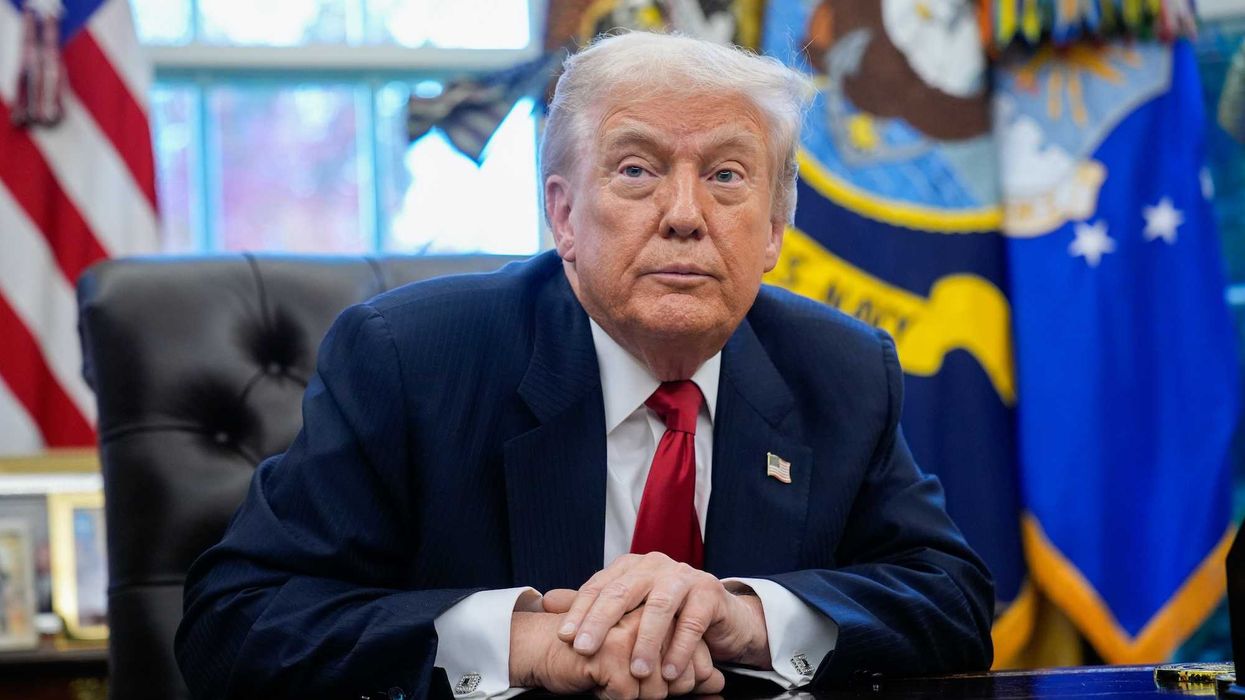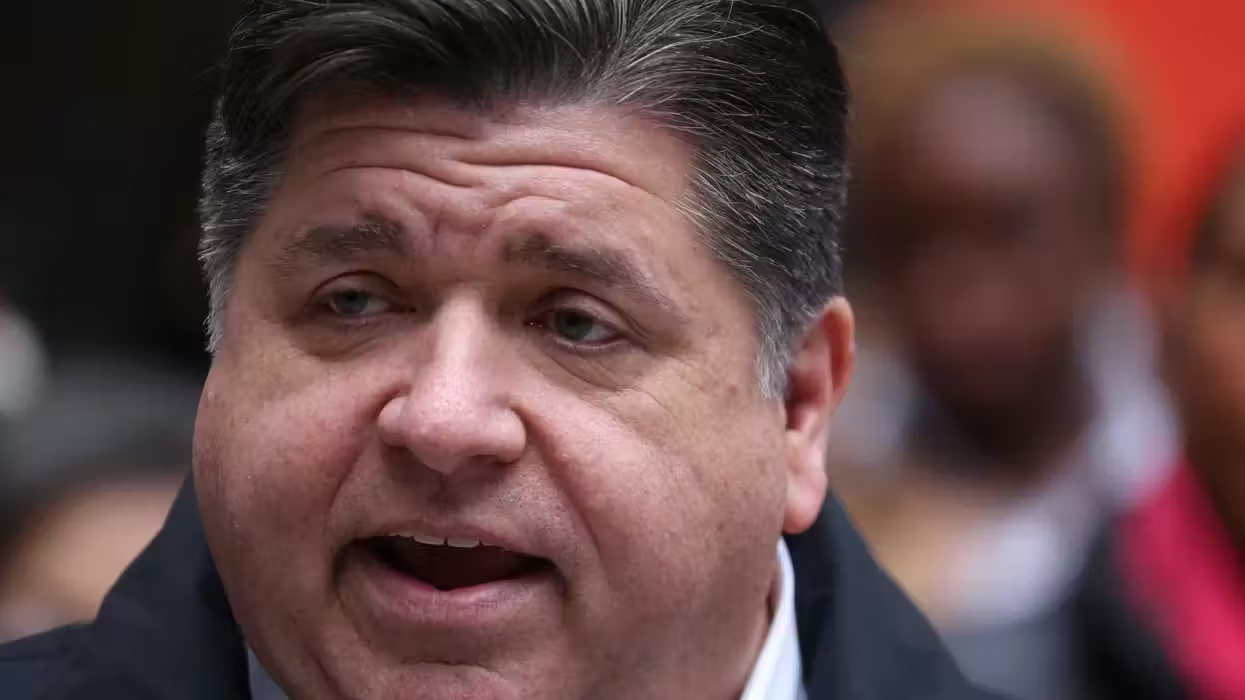Banning some backyard play sets, mandating nutrition labeling for restaurant menus, and new energy conservation standards for numerous consumer products were among the more expensive federal regulations imposed last year with no input from Congress.
The “pen and phone” and "year of action" became popular White House phrases in 2014, but for the last five years, the Obama administration has imposed tens of thousands of pages of new regulations without congressional authorization, surpassing the previous administration by nearly a third in imposing costly regulations, according to a forthcoming report.
 President Barack Obama signs a presidential memorandum, April 8, 2014. (AFP/Getty Images/Brendan Smialowski)
President Barack Obama signs a presidential memorandum, April 8, 2014. (AFP/Getty Images/Brendan Smialowski)
“The pen and phone means increasingly regulating outside the normal, lawmaking channel, and even the normal 'notice-and-comment' regulatory channel,” report author Wayne Crews, vice president for policy at the free market think tank Competitive Enterprise Institute, told TheBlaze.
President Barack Obama has an annual average of 81 regulations that come with a $100 million or higher price tag for compliance, according to the report, "Ten Thousand Commandments," set to be released Tuesday. That surpasses George W. Bush's annual average of 63. These rules are defined by the government as "economically significant," compared to regulations that cost less than $100 million.
The White House Office of Information and Regulatory Affairs pointed out that overall — not just "economically significant" — the Obama administration has still issued fewer regulations than the Bush administration — though of course, Obama still has nearly three years left in office. That includes that Bush imposed 505 costly rules in eight years; Obama has imposed 407 rules in five.
An administration official said looking only at costs misses the benefits of some federal rules.
“Simply focusing on costs ignores the high net benefits to Americans in terms of promoting health, safety and welfare as well as reducing long-run costs to the American economy,” the administration official told TheBlaze. “The regulations that [the White House Office of Management and Budget] reviewed over the administration’s first five years are expected to have an overall value to society worth about $200 billion annually when implemented, even after considering potential costs."
But Crews said the cost and lengthiness of the regulations must be considered.
“President Obama cut only a few billion; meanwhile he has added tens of billions in costs,” he said.
Last year, 3,659 new final rules were issued, while nearly as many, 3,300 have been proposed. The 26,417 pages added to the Federal Registry last year brought the total to 79,311 pages, the fourth-highest ever recorded. Four of the five highest years for pages in the Federal Registry came during Obama's time in office; the fifth-highest was when George W. Bush was president.
The overall cost of these regulations to the economy is about $1.9 trillion annually, Crews estimates. This would be about $14,974 per American household in increased compliance costs passed on to the consumer. The regulatory cost is even more harmful to businesses with fewer than 20 employees, which have an additional $10,585 per employee cost, compared with larger companies that have a $7,755 per employee cost annually. Businesses with fewer than 20 employees pay an average of $10,585 per employee, compared to $7,755 for companies with 500 or more employees.
Perhaps what really matters – particularly during a sluggish economy – is that the Obama administration pushed more “economically significant” rules than Bush, according to the report. “Economically significant” rules are defined by the Congressional Review Act of 1996 as costing more than $100 million for an industry to comply with.
Obama has pushed costly rules through executive action 29 percent more times than Bush, according to the report. Last year, 77 "economically significant" regulations were added to the books. Obama pushed the most regulations in 2010, with 99 rules, and the least during 2012 — when he ran for re-election — with 67 rules.
“All administrations add to the cumulative pile. Republicans brought us anti-trust regulation, the EPA, Homeland Security, Medicare drug expansion, Energy Department, Consumer Product Safety Commission,” Crews said. “For reasons I talk about in the report, Obama's number of overall rules is down this year, but Obama's costly rules are higher than Bush and rising.”
The costly 77 rules span across several departments and agencies.
The Department of Health and Human Services has pushed new menu labeling at restaurants and nutritional information about portion sizes for consumers. The Department of Agriculture now requires country-of-origin labeling for meat and peanuts and pushed new school lunch and school breakfast standards; new inspection standards for eggs and poultry; and enhanced nutrition labeling and more nutrition labeling for food sold in vending machines.
The Department of Homeland Security put in new rules for driver's licenses and ID cards that are acceptable to federal agencies.
Meanwhile, the Department of Energy imposed broad energy-efficiency standards for various manufactured items that included manufactured housing, TVs, computers, room air conditioners, dishwashers, vending machines and residential central air conditioners and heat pumps.
The Obama administration has emphasized that it wants to modernize regulations.
In January 2011, Obama issued an executive order on “improving regulation and regulatory review.” The order directed federal agencies to design cost-effective regulations that are compatible with economic growth; consider cost and benefit before implementing, and increase simplicity and flexibility.
The administration official added that Obama's “regulatory look back” initiative has reduced costs for 500 initiatives and is on track to save $10 billion in near term regulatory costs for the private sector.
“Last summer, the Department of Transportation published in the Federal Register a proposal to rescind the requirement that truck drivers submit and retain driver-vehicle inspection reports when the driver has neither found nor been made aware of any vehicle defects or deficiencies,” the official said. “This change would save tens of millions of hours in paperwork burden per year, for approximately $1.5 billion in annual paperwork time savings. When finalized, this rule will add to the number of final rule pages in the Federal Register but it will also significantly reduce burdens.”
The official said the White House doesn't accept a false choice.
"The administration believes we don’t have to choose between protecting the health, welfare, and safety of Americans and promoting economic growth, job creation, competitiveness, and innovation—we can do both," she said.
Crews contends that costs are rarely factored, saying that in fiscal year 2012 just 14 out of 3,500 rules had a cost-benefit analysis.
He said opposing heavy regulations is not supporting a regulatory-free society.
"Laissez-faire free enterprise do not mean 'no regulation'; that’s never our choice," Crews said. "It’s really whether administrative political discipline really protects us better than competitive discipline. All the things we want—food safety, privacy, cyber security, economic efficiency, clean airsheds and watersheds, safe drugs — are forms of wealth, and we do need market processes to continually escalate them. I don’t know of any tainted meat that’s not approved by the USDA."
—
Follow Fred Lucas (@FredVLucas3) on Twitter

 President Barack Obama signs a presidential memorandum, April 8, 2014. (AFP/Getty Images/Brendan Smialowski)
President Barack Obama signs a presidential memorandum, April 8, 2014. (AFP/Getty Images/Brendan Smialowski)






